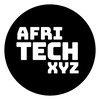|
Hello and welcome to another monthly news roundup of the most exciting developments shaping the African tech startup space. As usual, we have lined up some exciting news from the continent, to keep you up to date with current affairs in the African business and technology ecosystem. This month we explore the business cost of media censorship in Nigeria, the persistence of investors favouring White founders as well as news from Airtel, Bolt, and Helium Health, amongst others. Here’s the roundup. Black Founders Matter
African founders have struggled for decades to secure critical funding to bring their ideas to life, and while things are improving, one story this month shows that there is still so much more work to be done. In June, Kune, a six month-old Kenyan-based food tech startup, closed a $1 million pre-seed round to launch an on-demand food service in Nairobi. The company closed this funding round in two months, one of the largest in East Africa, and one of the few non-fintechs to have raised a seven-figure pre-seed round on the continent. Founded by Robin Reecht in December 2020, to ‘deliver freshly made, ready-to-eat meals at affordable prices’, the CEO told Techcrunch that he started the company “after three days of coming into Kenya” and finding it “impossible” to get great food at a cheap price. Unsurprisingly, he received heavy backlash for his tone deaf reasons for starting the business, with Kenyans equating it to a “White saviour” complex, especially since the solution he created is not new in Kenya as well as the speed with which he raised funds, compared to the ease with which Kenyans can access funding. White tech startup founders are 50,000% more likely to get funded in Kenya than in the USA. Typically, 65% of them had lived in Kenya for less than a year and demonstrated no specific special skills other than being White. Kune is a reminder of the gaping disparity in access to funding for the many innovators in the African tech space and an issue we want to see key stakeholders actively address soon. Nigeria Shuts Down Twitter Earlier in June, the Nigerian government announced the shut down of Twitter, following the deletion of a tweet from the country’s president that insinuated violence against the Biafrans [or Igbos as they are now called]. Twitter said the post violated its policy on abusive behaviour, which then led to the government blocking Nigeria’s over 40 million users from using the platform. It is estimated this is costing the country’s economy an $6 million daily. Nigeria’s information minister, Lai Mohammed, claimed that the suspension would be indefinite, stating that the government had acted because of “the persistent use of the platform for activities that are capable of undermining Nigeria’s corporate existence”. For many of the Nigerian tech community (the largest in Africa, and the millions of Nigerians who run their businesses via Twitter, this is more than a hindrance. Nigeria is Africa’s most attractive tech hub for investors, and many find new talent and make connections through Twitter. This constant regulatory changes in Nigeria is already a challenge for investors and this decision ironically proves that Twitter was right to go to Ghana rather than Nigeria. Here is a roundup of other news stories from the African startup scene in June:
What else are we reading:
For more news on African tech startups, follow us on Twitter @DiNNAfrica. Comments are closed.
|
Archives
September 2023
|


 RSS Feed
RSS Feed




